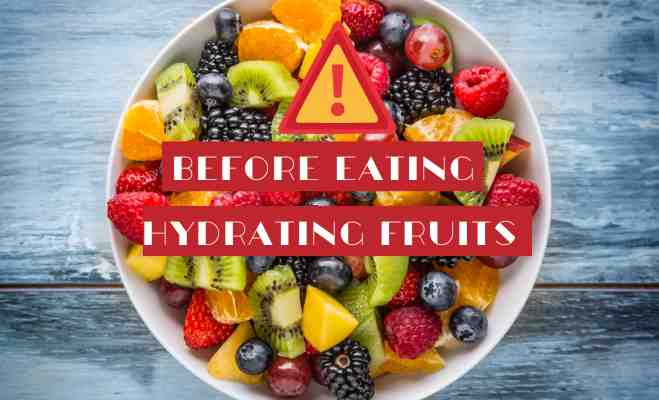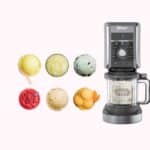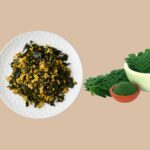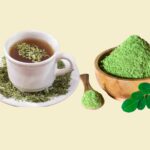Integrating hydrating fruits into your diet plan is a great method to stay hydrated and enjoy a variety of health benefits. In this blog site post, we will go over key preventative measures to keep in mind while taking pleasure in hydrating fruits.
Table of Contents
Understanding Hydrating Fruits
Hydrating fruits provide essential vitamins, minerals, and antioxidants for your health. Understanding the nutritional value and advantages of hydrating fruits can assist you in making wise choices.
Determining Your Hydration Needs
Everyone’s hydration needs vary depending on age, activity, environment, and general health. Determining your required hydration is crucial to pick the ideal hydrating fruits. Look out for indications of dehydration like dry mouth, dark urine, tiredness, or dizziness. Adjusting how much fruit you eat based on your requirements will assist you in remaining appropriately hydrated.
Safety Measures for Choosing Hydrating Fruits
Try to pick organic hydrating fruits. Believe what you like when selecting hydrating fruits so that you enjoy eating fruits and can include them in your diet.
Washing and Preparing Hydrating Fruits
Wash them well before eating fruits to remove dirt, bacteria, or chemicals. Preparing the fruits properly, like peeling, slicing, or cutting them, is essential to make them simpler to eat.
Serving and Storing Hydrating Fruits
To keep your hydrating fruits fresh and get the most hydration out of them, think of how much you serve and how you store them. The best serving size depends upon your requirements and objectives; however, try not to eat excessive sugar by keeping the portions moderate.
Keep fruit and vegetables in a cool, dry place or in the fridge to make them last longer. Just remember that some fruits, like bananas, might ripen quickly in the refrigerator, so use your judgment on how to store them.
Hydration-Friendly Fruit Combinations
You can make delicious fruit salads and smoothies with hydrating fruits. When making smoothies blend hydrating fruits with coconut water or almond milk to include them in their hydrating homes and make them even more enjoyable.
Hydrating Fruits for Different Diets
Hydrating fruits is excellent for different dietary requirements. For professional athletes and active people, hydrating fruits such as bananas and oranges hydrate your body and offer essential electrolytes.
Safety Measures for Specific Hydrating Fruits
While hydrating fruits are usually healthy, there are some things to be mindful about with particular fruits. Citrus fruits are hydrating and have lots of vitamin C. However, their level of acidity can damage your teeth. After eating water rich fruits like citrus, rinse your mouth with drinking water or wait before brushing your teeth to protect your enamel.
Small amounts and Balance
While hydrating fruits benefits you, eating fruits in small amounts and balancing them with other nutrient rich foods is necessary. Fruits have natural sugars, so that excessive eating can impact blood sugar levels and total health.
To have a balanced diet plan, include hydrating vegetables and fruits, whole grains, lean proteins, and healthy fats. By doing this, you get various crucial nutrients for your total wellness.
Precautions For Eating Hydrating Fruits
Allergies or Sensitivities:
Some people may have allergic reactions or levels of sensitivity to specific fruits. If you have understood allergies or levels of sensitivities, it is essential to avoid or restrict the intake of those fruits. If you experience any adverse reactions, such as itching, swelling, or trouble breathing after consuming a particular fruit, seek instant medical attention.
Related: 11 Surprisingly Hydrating Fruits To Keep You Refreshed This Summer
Private Dietary Needs:
While hydrating fruits provides various benefits, it’s essential to consider your personal dietary requirements. If you have diabetes or require to monitor your blood sugar levels, bear in mind the sugar content in certain fruits and adjust your consumption appropriately. Talk to a healthcare professional or authorized dietitian for personalized recommendations if you have specific dietary constraints or medical conditions.
Related: Eat Less Sugar
Fruit Ripeness:
Take notice of the ripeness of the fruits you consume. Overripe fruits might have higher sugar material and a softer texture, while unripe fruits might be less delicious and more difficult to digest. Discover the perfect balance of ripeness based on your taste choices and gastrointestinal comfort.
Moderation:
While hydrating fruits is healthy, it is very important to consume them in moderation as part of a well-balanced diet. Consuming excessive amounts of fruits, even hydrating ones, can contribute to extreme sugar consumption. Guarantee you stabilize your fruit intake with other nutrient rich foods to preserve a well-rounded and varied diet plan.
Related: How Can I Hydrate Fast? 7 Proven Methods For Rapid Hydration
Fruit Juice:
Workout care when taking in fruit juices, even those made from hydrating fruits. Fruit juices can be high in sugar and do not have the useful fiber found in entire fruits. Whenever possible, go with whole fruits, and if you do consume fruit juices, select those that are 100% juice without included sugars.
Fruit Hygiene:
Thoroughly clean fruits prior to intake to get rid of any dirt, pesticides, or contaminants. This is specifically essential for fruits with edible skins, such as apples or berries, as they can harbor residues. Correct fruit health decreases the risk of ingesting damaging substances.
Individual Tolerance:
Every person’s digestion system and tolerance for different fruits might vary. Take note of how your body responds to specific fruits and change your intake appropriately. Some individuals might experience gastrointestinal pain or bloating from particular fruits, particularly when consumed in large quantities or when they are not completely ripe.
A Word from Blogzah
Including hydrating fruits in your diet is a wonderful method to boost hydration and enjoy their nutritional advantages. By being conscious of allergies or levels of sensitivities, considering private dietary needs, paying attention to fruit ripeness, practicing moderation, being careful with fruit juice usage, preserving fruit health, and acknowledging specific tolerance, you can make informed choices that promote your health and wellness.
Overripe fruits might have greater sugar content and a softer texture, while unripe fruits might be less flavorful and more difficult to digest. Workout care when consuming fruit juices, even those made from hydrating fruits. Fruit juices can be high in sugar and lack the helpful fiber found in entire fruits. Whenever possible, opt for whole fruits, and if you do consume fruit juices, select those that are 100% juice without included sugars.
By being conscious of allergic reactions or sensitivities, considering private dietary requirements, paying attention to fruit ripeness, practicing small amounts, being cautious with fruit juice consumption, keeping fruit healthy, and acknowledging specific tolerance, you can make educated options that promote your health and wellness.
Reference
Asthma and Allergy Foundation of America. (n.d.). Allergic Reactions.
Dietary Fiber: Essential for a Healthy Diet.
U.S. Food and Drug Administration. (2017). Juice Safety: Safe Practices for Consumers
















